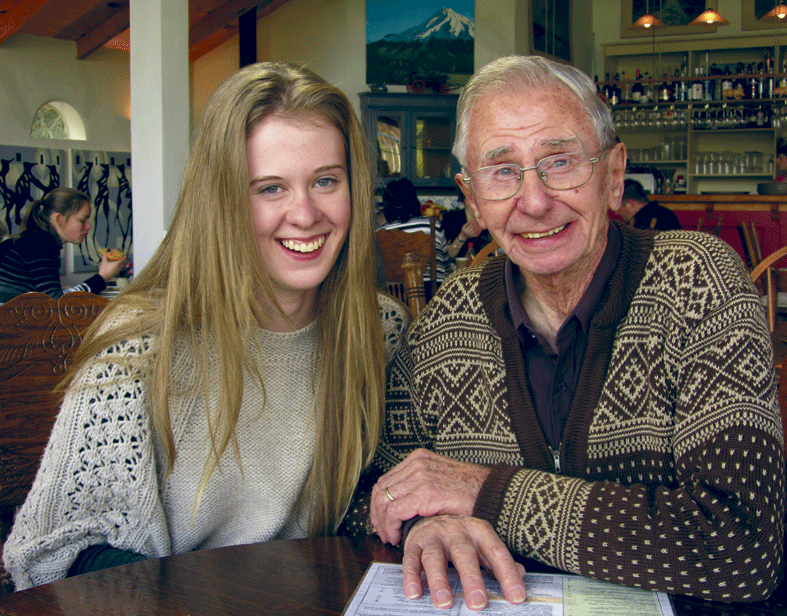 Letter to a first-time voter
Letter to a first-time voter
John Kleinsman
Dear Grace,
Congratulations on reaching 18. Our law states: your mother and I are no longer your legal guardians; you can purchase alcohol, fireworks and Lotto tickets. You can also vote for the first time.
It strikes me many young people are selective about which new rights they claim and show little interest in voting. I find that sad.
Your great grandfather Daniel and grandfather Owen put their lives at great risk in two different wars to fight for the democracy we have long enjoyed. The right to vote is at the heart of that democracy.
When he was your age, your Opa Gerhardus lived under a violent totalitarian regime that denied him many basic rights including the right to vote, play sport, freedom of association, free speech, and access secondary education. Then, as an immigrant to New Zealand, he was denied the right to vote until 1978 when he wasa 52.
Reflecting on history helps us recall the importance and privilege of exercising our democratic responsibilities. Your right to vote has been earned for you by your forbears and it bears the stain of blood spilled.
The issues we face today are many: global warming, refugees, immigration, child poverty, family violence, growing inequality, support for beneficiaries, euthanasia, abortion, health-funding, racism, education, housing and prison reform, just to name some of the ‘neon-light’ issues. I hear you ask: ‘How can I possibly deal to all of these issues?’
You have had a privileged upbringing and you have not had to fight for basic things that lots of New Zealanders are still denied. So, many of the issues mentioned above may lie outside of your own immediate experience. It will take effort and energy to become politically engaged.
Continue to learn and think about those who have to struggle for the basic things you might not think twice about. In Catholic Social Teaching we call it a ‘preferential option for the poor’. Study the party policies and reflect on how they affect the most disadvantaged. Cast your vote always with them in mind rather than your own wellbeing.
Grace, you enjoy the outdoors and feel strongly about the environment. You also care about other big life issues, including euthanasia and abortion. It gets confusing when, within parties, there are inconsistencies and even contradictions in policies. Remember that our current voting system gives you two votes; one for the party and one for your local member. One approach is to cast your electoral vote for the candidate who will best represent your views on the issues on which there should be no compromise – often described in Parliament as ‘conscience votes’ – and to give your party vote to the party you think has the better policies regarding the bigger-picture social issues which can allow, or even require, a bit of give and take.
Even then, it is likely you will find yourself having to vote for a politician or party at odds with certain beliefs you hold dearly. In which case, remember that it is possible to influence MPs’ thinking after the election through lobbying. Not being able to vote for the ideal doesn’t necessarily mean compromising your beliefs or commitment to greater justice. Be an active voter.
Lastly, believe you can make a difference. Pope Francis said we are ‘small, yet strong in the love of God’. As Catholics we stand for certain things, and we also need to stand up for certain things. Voting and getting involved in the political process is an important way for you to live out your call to follow Jesus and make our country a more just place … and I know you are ready to do that.
Your loving Dad.
John Kleinsman is director of The Nathaniel Centre and lectures for The Catholic Institute of Aotearoa New Zealand. The full version of this letter appeared in issue 43 of The Nathaniel Report.